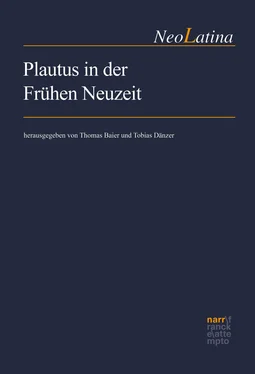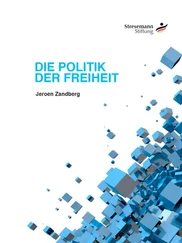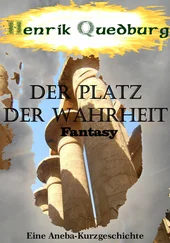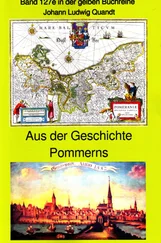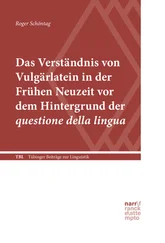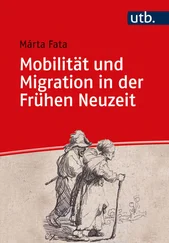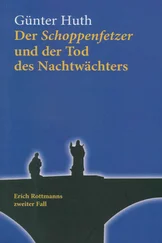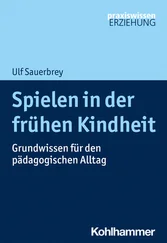The greatest difficulty in collecting fragments at that time lay in the fact that there were no reliable editions of their sources. And there was not yet any scholar who was really interested in collecting fragments. That remained the case until the debut on the philological scene of the figure who was destined to become the greatest scholar of his time, as was PolitianPoliziano, Angelo in the previous century: Joseph Justus ScaligerScaliger, Joseph Justus. ScaligerScaliger, Joseph Justus never published an edition of Plautine fragments, and his emendations in our critical apparatuses are flanked by those of other authors of adversaria philologa , such as Schoppius, Canter, Turnebus, and many others.46 Why, then, should we consider him the scholar who contributed most of all to the philological reconstitution of the texts transmitted in fragments?
ScaligerScaliger, Joseph Justus is not only the author of important writings on the sources of the fragments,47 but was also the promoter of many other works. In the same years in which he was working on VarroVarro, a collection of fragmentary Latin poets by Robert EstienneEstienne, Robert came out posthumously.48 The work was completed, after the death of Robert EstienneEstienne, Robert, in 1559, by his son Henri. The volume includes epic poets and playwrights, such as LiviusLivius Andronicus, NaeviusNaevius, EnniusEnnius, Caecilius, PacuviusPacuvius, and poets such as Lucilius, the neoteroi , and Petronius. There are no fragments of Plautus, which were also absent from the edition of the M. Plauti Comoediae XX edited by Stephanus in 1530.
Robert EstienneEstienne, Robert’s is an important collection of fragments, published by a friend of ScaligerScaliger, Joseph Justus, but an edition full of gaps and errors that can be easily explained if we recall that at that time there was not yet a reliable edition of the auctores who mention the greatest number of fragments: NoniusNonius Marcellus Marcellus, Festus, VarroVarro, and the grammarians. Probably Estienne’s experiment was considered inadequate by ScaligerScaliger, Joseph Justus, since he himself decided to engage in the study of some of the most important sources of fragments. In this regard, his Coniectanea in M. Terentium Varronem de lingua Latina published in 1565 are fundamental,49 also because all subsequent editors of Plautus took them into account. Also worth mentioning are ScaligerScaliger, Joseph Justus’s Castigationes on Festus: they were first published in 1575 and then again the following year.50 In these works it is remarkable how ScaligerScaliger, Joseph Justus’s greatest effort is devoted to emending the fragments quoted by Varro and Festus. In his Coniectanea , p. 168 ad 7, 104, speaking of some verses of EnniusEnnius, he takes up the simile of the shipwreck used by PolitianPoliziano, Angelo:51
Valde enim delectant me hae reliquiae veterum auctorum, tanquam quaedam ex naufragio tabellae.
ScaligerScaliger, Joseph Justus also planned an edition of NoniusNonius Marcellus Marcellus’ lexicon. However, he had to abandon the project because of the NoniusNonius Marcellus edited by Hadrianus Junius, which was published in 1565 by Plantin with an imperial privilege that prevented anyone else from editing NoniusNonius Marcellus for six years.52 A copy of this edition preserved in Oxford, Bodleian Library, Auct. S V 35, contains ScaligerScaliger, Joseph Justus’s handwritten marginalia ,53 and his work on NoniusNonius Marcellus is also attested by a personal collation of a manuscript, which has been transcribed into a Venice 1513 and a Basel 1526 edition of PerottiPerotti, Niccolò’s Cornucopiae Perotti, NiccolòCornucopiae with VarroVarro, Festus, and NoniusNonius Marcellus, both owned by Isaac Vossius (Leiden, University Library, 761 A 9 and 761 A 10).54
Essential for NoniusNonius Marcellus and Fulgentius, however, is the second edition by Josias MercerusMercerus, Josias,55 in which many of ScaligerScaliger, Joseph Justus’s observations are included. As regards the fragments, the uncertainties and contradictions are still many. MercerusMercerus, Josias is the only scholar to assume the existence of Tiberius as a comedy title, since he reads (p. 134) NoniusNonius Marcellus’ sentence introducing the quotation of Cornicula fr. II as follows: Plautus Cornicularia: Latrocinatus annos decem meret. Idem in Tiberio: Qui apud regem in latrocinio fuisti, stipendium acceptitasti . Yet MercerusMercerus, Josias himself in a footnote, recalling the same line of Plautus according to VarroVarro too, concludes with more judgment: «Itaque hic legendum, latrocinatus annos decem Demetrio, qui apud regem i. l. f. s. a. quae sunt Nonii explicantis Plautum, vel potius eius a quo NoniusNonius Marcellus exscribsit».
As far as the grammarians are concerned, the edition by Elias van PutschenPutschen, Elias van of the Grammaticae latinae auctores antiqui published in 1605 was encouraged by ScaligerScaliger, Joseph Justus’s philological activity. In 1598 Putschius studied law at the University of Leiden, where from 1593 ScaligerScaliger, Joseph Justus had succeeded Iustus LipsiusLipsius, Justus as professor. The edition by PutschiusPutschen, Elias van begins with a dedicatory epistle Illustri et incomparabili viro Iosepho Scaligero Iul. Caesaris filio in which he mentions ScaligerScaliger, Joseph Justus’s early writings on VarroVarro and Festus.
To return to Plautus’ fragments, ScaligerScaliger, Joseph Justus believed in the existence of a comedy of Plautus entitled Clitellaria ( The comedy of the saddle ), for he observed in the sources some quotations from passages of the Cistellaria Cistellaria that were absent from the manuscripts of the comedy. It was only after the discovery of the Ambrosian palimpsest that it was possible to read these quotations among the frustula of an act attested only in that manuscript. In his commentary on VarroVarro ling. Lat. 7, 64 ScaligerScaliger, Joseph Justus claims that in these grammatical sources the title Cistellaria Cistellaria must be corrected to Clitellaria , which is nothing more than a second title of the non-Varronian comedy Astraba (which in Greek means “saddle”, more or less like clitellae ).
ScaligerScaliger, Joseph Justus, moreover, attributes to the Clitellaria an entire passage reconstructed on the basis of various fragments of the Cistellaria Cistellaria: the current lines 405, 407 (both from VarroVarro), 408 (from Festus and PriscianPriscian), and 383 (from NoniusNonius Marcellus). Elsewhere too he exploits the possibility of joining several fragments in order to compose a single one. In his Coniectanea , p. 168 ad Varr. ling. Lat . 7, 104, about some lines of EnniusEnnius, he writes:
Hi luculentissimi versiculi a nobis non solum emendati sunt, sed et, quod quatuor locis dispersi sunt apud Nonium, in unum corpus collecti et digesti.
The first collection of Plautine fragments that follows ScaligerScaliger, Joseph Justus’s studies on the sources is that of Pierre DanielDaniel, Pierre, published as an appendix to the 1577 edition of LambinusLambinus, Dionysius.56 It should be remembered that LambinusLambinus, Dionysius himself in two letters dated 1571 and 1572 asked ScaligerScaliger, Joseph Justus for help with some corrections and conjectures on the text of Plautus.57 The LambinusLambinus, Dionysius edition was published posthumously and was edited by Iacobus Helias, author of an introductory epistle explaining the criteria adopted and mentioning the work of reconstructing LambinusLambinus, Dionysius’ notes («Hi commentarii manu Lambini ita scripti erant ut non codex sed adversaria viderentur esse»). With regard to the fragments Helias writes: «Adiunximus Plautina loca ex antiquis Grammaticis a Georgio Fabricio collecta et a Petro Daniele Aurelio doctissimo viro quibusdam in locis correcta et aucta». In fact, the edition is not very different from that of FabriciusFabricius, Georg, of which it contains all the brief notes of comment, but it contains some additions and corrections, as well as an extra comedy, ScaligerScaliger, Joseph Justus’s Clitellaria .
Читать дальше
